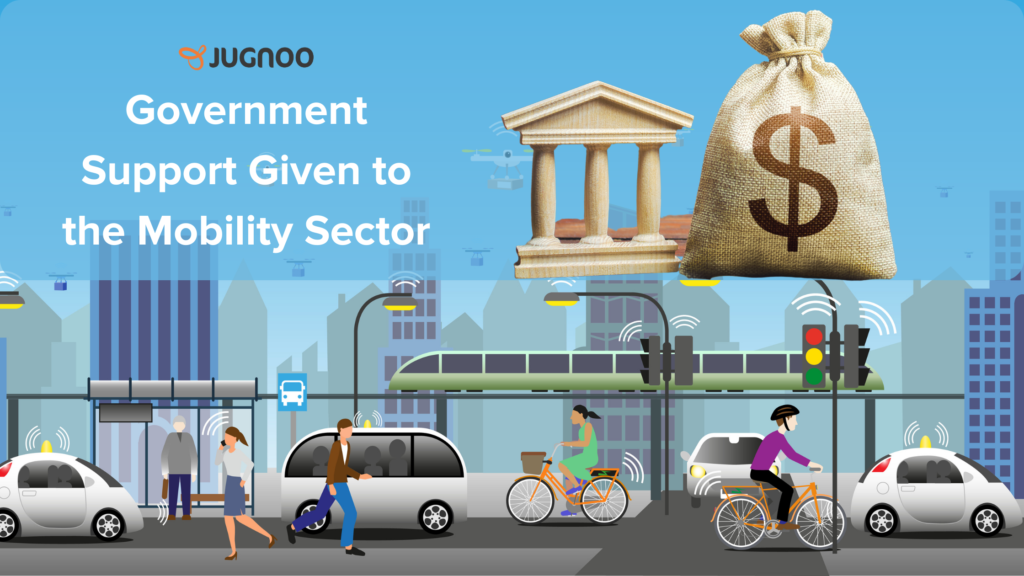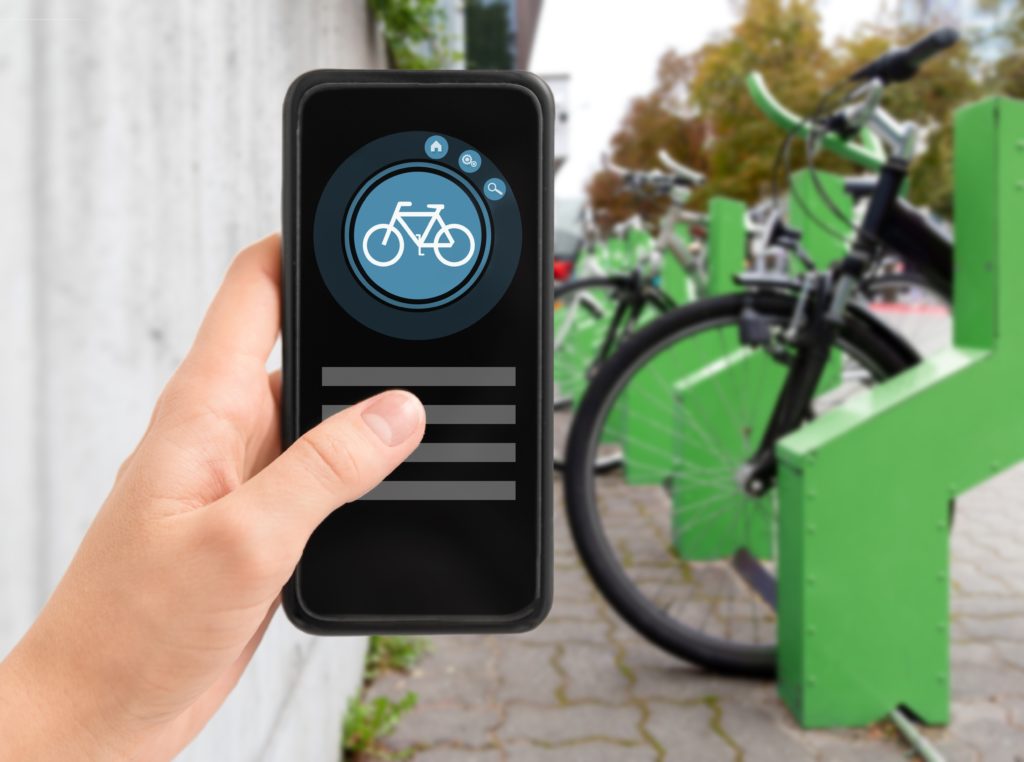Government Initiatives for Driving the Future of Mobility
The definition of what a vehicle is and how we use it is changing. Automation, digital transformation, societal preferences, and environmental concerns – all are impacting how we are entering the future. The future of mobility is being redefined by an increasing wave of technology-driven megatrends. Consumer expectations are changing, and the industry is transitioning from an ownership paradigm to a Mobility-as-a-Service (MaaS) access model, which is especially important for younger generations.

Thus, new mobility reforms are needed to address increasing urbanization, population growth, and environmental concerns.
Recent Trends Changing the Future of Mobility
In the next ten years, the transport sector will change dramatically. The following are the most important trends that will shape the future of mobility:
1) A Greater Focus on the Public Sector in the Mobility Ecosystem
With people embracing the new normal and well adapting to the new processes, shared mobility is gaining attention for all good reasons. Given that personal vehicles are unused for 95% of the day, shared mobility allows users to avoid costs associated with ownership like insurance, tax, maintenance, and parking while still taking riders from point A to point B.
The shift to shared mobility has already started. As we all know, the future of mobility depends on technological innovations, MaaS platforms are constantly evolving themselves to provide entrepreneurs with necessary integrations and software so that they can stand out from the competitors. They help them with in-app services like easy bookings, payment, scheduling rides, tracking on a real-time basis, etc.
2) Micro-Mobility Systems are Becoming the Future of Mobility
MaaS typically began as a ride-hailing and car-sharing service, but now it has lately expanded to bikes and scooters, often referred to as micromobility. The externality of social distancing slowed down the mobility industry services of ridesharing due to which consumers have been pivoting to the usage of light vehicles options. This rapid consumer adoption of micromobility services has shown a surge in investors’ interest.

MaaS platforms offer smart and advanced software to run the entire micromobility business. Entrepreneurs who wish to enter this sector can delight their customers with intuitive apps, easy bookings, and multiple payment options. They also get a powerful admin dashboard to manage the fleet. Experience the power of seamless integrations and white-label solutions for your micromobility business with a MaaS platform.
3) New Investments Coming In
MaaS enables consumers to be benefitted from digitalization and utilize booking services in a convenient way. It has aided in the mobility sector’s growth and development. Several forecasts and analyses have been published regarding the potential growth of the Mobility as a Service market, with estimates ranging from USD 106.8 billion to over USD 1 trillion by 2030. Based on the estimates and studies, one thing is clear: the future of mobility is green.
For example, it was reported a few years ago that over 1,700 start-ups were challenging the automobile industry, and new ideas, of course, require funding.
Big firms in the automotive and technology industries are researching the new market, either through investments (e.g., Yamaha investing into a bike rental company – Royal Brothers) or through in-house development (Tesla’s autonomous mobility service).
Government Initiatives Worldwide to Enter the Future of Mobility
1) The US Government

Let’s talk about some stats related to the mobility sector in the US. The extended auto industry has nearly $2 trillion in revenues—more than 10 percent of US GDP. The commercial trucking industry adds another $700 billion to that figure. These figures show how vast the future of mobility is going to be.
In 2016, Columbus, Ohio, won the $40 million Smart City Challenge sponsored by the US Department of Transportation. Columbus’ winning Smart City application identified key issues, such as inadequate transportation to community health clinics, to channel new investments in autonomous and connected vehicles, electric vehicles, and sensors, spurred by city officials’ desire to make Columbus the “most attractive, livable, equitable, and sustainable city in America.” The city has been able to leverage its initial award into around $500 million in total investment from both public and private sources.
President Joe Biden signed the Infrastructure Investment and Jobs Act1 into law in November 2021. This bill establishes a strong emphasis on repairing the country’s aging transportation systems, which includes everything from rebuilding roads and bridges to investing in public transportation and expanding a national network of electric vehicle (EV) charging stations. Efforts are also being made to enable rail and transport authorities to complete much-needed capital projects.
A stronger infrastructure means a stronger mobility ecosystem. This proves to be a great chance for the entrepreneurs to be an opportunist and start investing their resources into this sector. From starting a smart taxi service app to offering convenient carpool services – the MaaS platform is definitely there to help you out!
2) The UK Government

On 19 March 2019, the UK Government published its long-awaited strategy on urban mobility. The main outcome of the strategy was the Regulatory Review into the following proposals –
• the future regulatory framework for micromobility (such as e-scooters)
• legislative changes to taxi and PHV licensing regulations
• new regulations, guidelines, or standards on data sharing between transport providers, local authorities, and MaaS providers.
The strategy makes clear the Government’s preference for public and shared transport over private transport in the urban context given the need to address congestion and pollution issues. The Government is seeking to improve its understanding of what motivates people to use shared transport and hopes that effective MaaS solutions can incentivize the use of public transport. The strategy emphasizes the need for new modes of transport, such as micromobility, to integrate into the public transport system.
The Government also emphasizes that the mobility marketplace must remain open in order to stimulate further innovation and ensure that consumers get a good deal. In a section of the strategy, the Government states that it will “investigate the case for the Government to do more to shape the way MaaS platforms emerge”. It is clear that the Government is particularly concerned about the potential for MaaS businesses to develop into monopolies. The UK Government has also pledged to undertake research into the factors that influence the uptake of ride-sharing, as well as vehicle sharing.
This urban mobility strategy is an important part of the wider Future of Mobility Grand Challenge, one of the four Grand Challenges established in the Industrial Strategy for the UK. The Future of Mobility Grand Challenge aims to capitalize on transport and make the UK a world leader in mobility innovation.
Do you know that in November 2018, the UK Government awarded five tech companies up to £50,000 each to prove the feasibility of their ideas in using cutting-edge technology to tackle the problem of rural isolation and loneliness? These companies matched the supply and demand for transport in rural areas. Your company can be the next. Join Jugnoo – the top-notch mobility as a service platform that will help you enter the future of mobility with a boom.
3) The European Government

Interest in MaaS has quickly spread across Europe, the reason being, that the European Commission has continually promoted multi-modal journey planners across the EU for more than a decade. The Commission is now proposing a new urban mobility initiative. Its objectives include:
- contributing to EU Green House Gas reduction targets as set in the Climate Law (including -55% by 2030)
- improving transport and mobility to, in, and around cities as well as improving the efficiency of goods and home deliveries.
More targeted EU funding and better synergies between different programs are being done to support the objectives. The EU Commission is supporting cities towards the development of future of mobility through:
- Targeted funding: €18.5 billion was awarded to urban projects in 2014-2020, including via CEF, H2020, ESIF, ELENA.
- Technical assistance: for example via the European Investment Bank joint support program JASPERS.
- Sustainable urban mobility plan (SUMP) guidelines and accompanying guidance documents for cities to help promote multimodality, active mobility, and shared mobility. The development of SUMPs will be a focal point within the new framework.
The clear-cut purpose of the EU Commission is to make the mobility industry more compatible and connected. This can be a great opportunity for businesses to consider this vertical and get ready to reap numerous benefits. Again, a smart MaaS platform can help you out to be the leader in the future of mobility.
4) The African Government

The rapid growth in African cities has led organizations to work towards the development of urban mobility. The Institute for Transportation & Development Policy (ITDP) released a public grant of 4.998.856,00 € with the duration of 09/2018 till 08/2023. The countries included in this are – Ethiopia, Kenya, Rwanda, Tanzania, Uganda.
The ITDP Africa is participating in ITDP’s Global Cycling Cities Campaign, which aims to increase the number of people living near safe cycling facilities by 25 million. The campaign will provide technical assistance to the four project cities of Addis Ababa, Kampala, Kigali, and Kisumu in order to redesign streets and adopt policies that promote cycling in order to reduce greenhouse emissions, improve air quality, and encourage mode shift away from private vehicle use.
Kenya’s Kisumu Sustainable Mobility Plan was launched in February 2021. The mobility plan is a ten-year strategy that prioritizes walking, cycling, and public transportation to improve access for city residents.
April 27th, 2021- The inaugural E-mobility Technology Showcase was held at the Kigali Convention Center (KCC) by the Ministry of Infrastructure, Rwanda Environment Management Authority (REMA), and GGGI Rwanda, with the goal of showcasing the present and upcoming e-mobility technology alternatives available in Rwanda. Participants had the chance to demonstrate the power and promise of sustainable transportation to create jobs, develop the economy, and enhance overall health outcomes.
The event drew representatives from several government agencies, the commercial sector, and various E-Mobility investment partners. Eng. Alfred Byiringiro, Rwanda’s Director-General for Transport, stated at the ceremony that the Rwandan government has approved a new set of incentives to aid in the achievement of these objectives. The new incentives are designed to encourage people to switch to electric vehicles.
Aren’t these great motives for the entrepreneurs to enter the mobility sector with the help of an advanced mobility-as-a-service platform and become a leader in the market?
Make Jugnoo.io your tech partner and unlock the full potential of the bright future of mobility.



